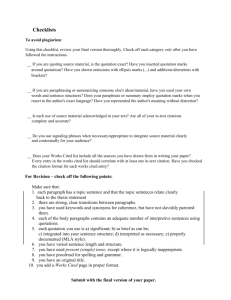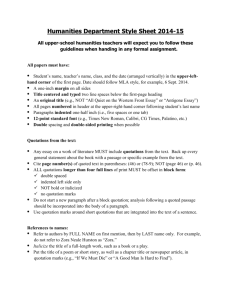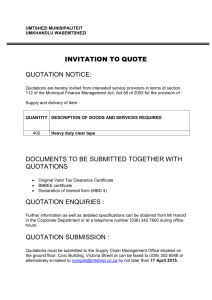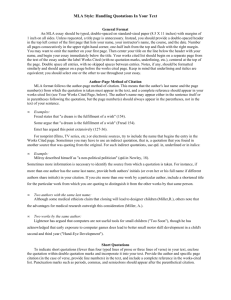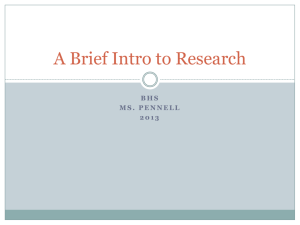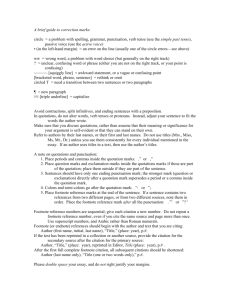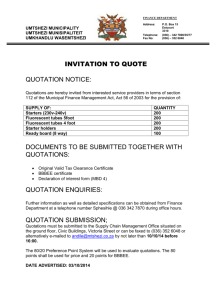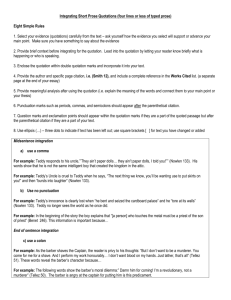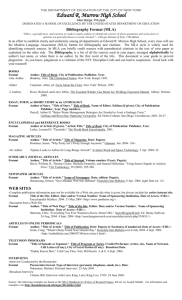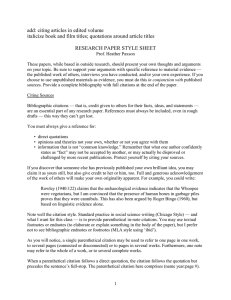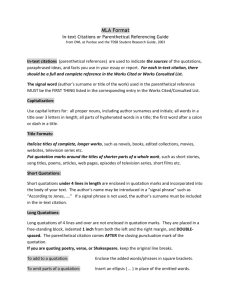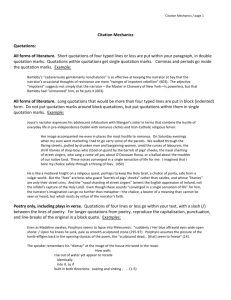Name
advertisement
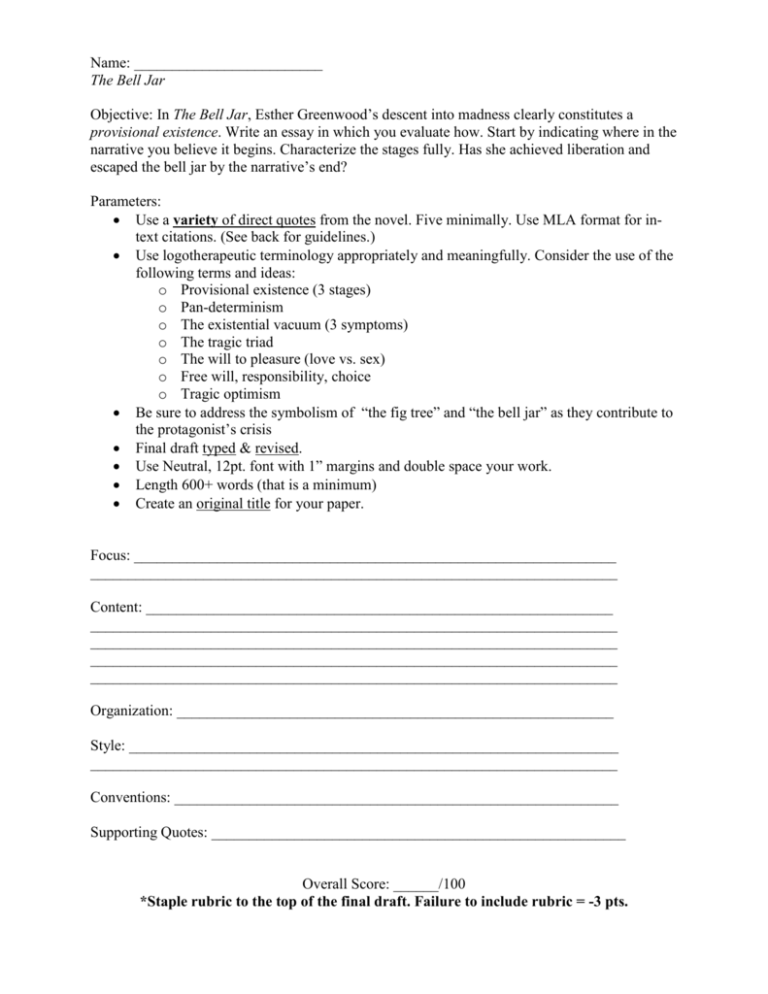
Name: _________________________ The Bell Jar Objective: In The Bell Jar, Esther Greenwood’s descent into madness clearly constitutes a provisional existence. Write an essay in which you evaluate how. Start by indicating where in the narrative you believe it begins. Characterize the stages fully. Has she achieved liberation and escaped the bell jar by the narrative’s end? Parameters: Use a variety of direct quotes from the novel. Five minimally. Use MLA format for intext citations. (See back for guidelines.) Use logotherapeutic terminology appropriately and meaningfully. Consider the use of the following terms and ideas: o Provisional existence (3 stages) o Pan-determinism o The existential vacuum (3 symptoms) o The tragic triad o The will to pleasure (love vs. sex) o Free will, responsibility, choice o Tragic optimism Be sure to address the symbolism of “the fig tree” and “the bell jar” as they contribute to the protagonist’s crisis Final draft typed & revised. Use Neutral, 12pt. font with 1” margins and double space your work. Length 600+ words (that is a minimum) Create an original title for your paper. Focus: ________________________________________________________________ ______________________________________________________________________ Content: ______________________________________________________________ ______________________________________________________________________ ______________________________________________________________________ ______________________________________________________________________ ______________________________________________________________________ Organization: __________________________________________________________ Style: _________________________________________________________________ ______________________________________________________________________ Conventions: ___________________________________________________________ Supporting Quotes: _______________________________________________________ Overall Score: ______/100 *Staple rubric to the top of the final draft. Failure to include rubric = -3 pts. MLA Format – in text citation Short Quotations To indicate short quotations (fewer than four typed lines of prose or three lines of verse) in your text, enclose the quotation within double quotation marks. Provide the author and specific page citation (in the case of verse, provide line numbers) in the text, and include a complete reference on the Works Cited page. Punctuation marks such as periods, commas, and semicolons should appear after the parenthetical citation. Question marks and exclamation points should appear within the quotation marks if they are a part of the quoted passage but after the parenthetical citation if they are a part of your text. When working with one source, you need not use the author’s last name. For example: According to some, dreams express "profound aspects of personality" (Foulkes 184), though others disagree. According to Foulkes's study, dreams may express "profound aspects of personality" (184). Is it possible that dreams may express "profound aspects of personality" (Foulkes 184)? Long Quotations Place quotations longer than four typed lines in a free-standing block of text, and omit quotation marks. Start the quotation on a new line, with the entire quote indented one inch from the left margin; maintain double-spacing. Only indent the first line of the quotation by a half inch if you are citing multiple paragraphs. Your parenthetical citation should come after the closing punctuation mark. When quoting verse, maintain original line breaks. (You should maintain double-spacing throughout your essay.) For example: Nelly Dean treats Heathcliff poorly and dehumanizes him throughout her narration: They entirely refused to have it in bed with them, or even in their room, and I had no more sense, so, I put it on the landing of the stairs, hoping it would be gone on the morrow. By chance, or else attracted by hearing his voice, it crept to Mr. Earnshaw's door, and there he found it on quitting his chamber. Inquiries were made as to how it got there; I was obliged to confess, and in recompense for my cowardice and inhumanity was sent out of the house. (Bronte 78) Adding or Omitting Words In Quotations If you add a word or words in a quotation, you should put brackets around the words to indicate that they are not part of the original text. Jan Harold Brunvand, in an essay on urban legends, states: "some individuals [who retell urban legends] make a point of learning every rumor or tale" (78). If you omit a word or words from a quotation, you should indicate the deleted word or word by using ellipsis marks, which are three periods (...) preceded and followed by a space. For example: In an essay on urban legends, Jan Harold Brunvand notes that "some individuals make a point of learning every recent rumor or tale ... and in a short time a lively exchange of details occurs" (78).
